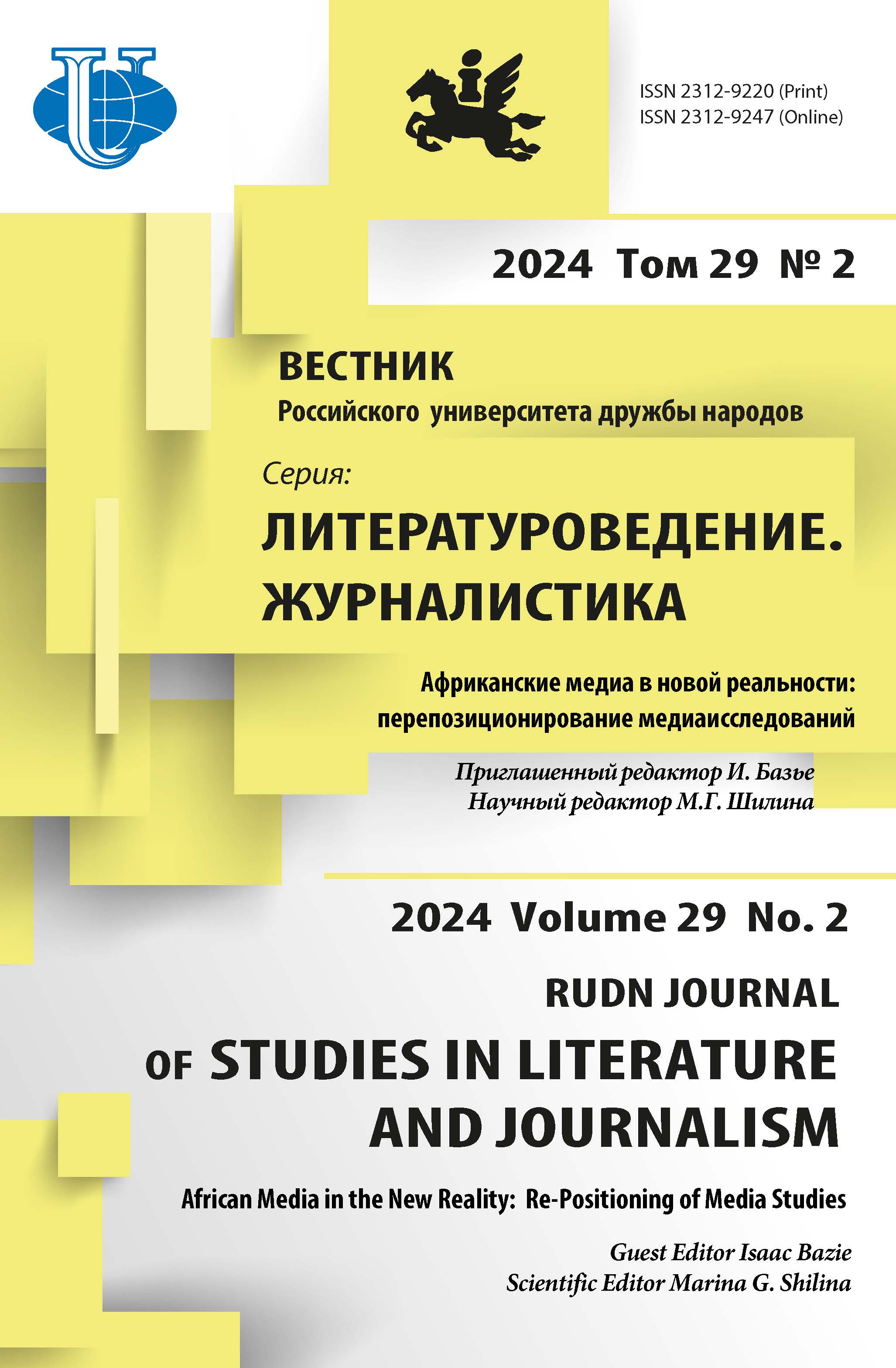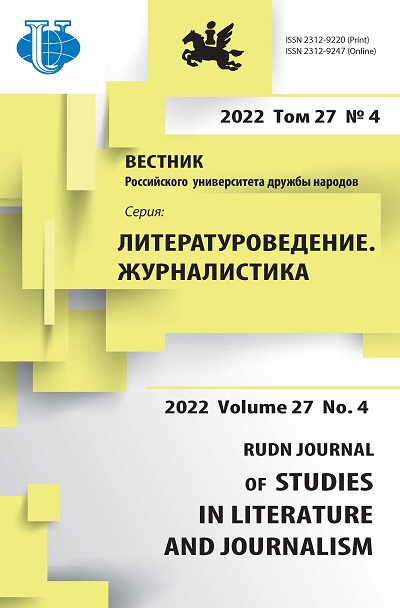The fruit of the Paradise tree: the problem of cognition in the works of Yu.P. Kuznetsov
- Authors: Ilinykh A.V.1
-
Affiliations:
- Tver State University
- Issue: Vol 27, No 4 (2022)
- Pages: 660-668
- Section: LITERARY CRITICISM
- URL: https://journals.rudn.ru/literary-criticism/article/view/33277
- DOI: https://doi.org/10.22363/2312-9220-2022-27-4-660-668
Cite item
Full Text
Abstract
The analysis of the epistemological and axiological aspects of Yu.P. Kuznetsov's poetry in general and when implementing the biblical intertext in it in particular is presented. The purpose of the work is to study the peculiarities of the realization of the theme of cognition in the works of Yu.P. Kuznetsov in the context of spiritual search and religious exploration of the world. The main goal is to determine, considering the specifics of the type of thinking of the lyrical hero, a set of artistic images of biblical nature, which the author uses while discussing the theme. The scientific novelty of the work lies in the consistent consideration of images and motives of biblical nature related to the problems of gnoseology. Special attention is paid to the consideration of Old Testament images-symbols dating back to the myth of the fall. The main directions of the development of the author's poetic thought regarding the issues of the consistency of scientific knowledge and the idea of progress and related problems of the interaction of rationalistic and intuitive-religious types of thinking are analyzed. It is established that the author prefers a non-rationalistic method of cognition of truth based on the concept of co-creation of man and God, which leads to the sacralization of the creative process and the image of the artist (in the broad sense of the word) as a mediator of the will of God. Kuznetsov uses the religious symbol in order to show the universality and necessity of the intuitively religious approach to cognition that does not depend on specific historical conditions. The poet's interpretation of the biblical image is close to the canon and folk tradition.
About the authors
Anastasia V. Ilinykh
Tver State University
Author for correspondence.
Email: anil.mail@bk.ru
ORCID iD: 0000-0002-2826-2315
postgraduate student, Department of Philological Basics of Publishing and Literary Creation
33 Zhelyabova St, Tver, 170002, Russian FederationReferences
- Agapkina, T.A. (2017). Symbolism of trees in folklore and traditional culture of the Slavs: Apple tree. Studia Litterarum, (1), 284–305. (In Russ.)
- Fast, G. (2007). Studies on the Old Testament. A Guide to the Study of the Holy Scriptures. Krasnoyarsk: Eniseyskiy Blagovest Publ. (In Russ.)
- Ilinskaya, N.I. (2001). “Hell Parish” in Yuri Kuznetsov's poem “Descent into Hell”: Tradition and Intertextuality. Russian Literature. Studies: Collection of Scientific Papers, XV, 114–125. (In Russ.)
- Ilinskaya, N.I. (2004). Yuri Kuznetsov: The structure of the poet's religious consciousness on the threshold of the XXI century. The Journal of V.N. Karazin Kharkiv National University. Series: Philology, 39(607), 53–57. (In Russ.)
- Ilinskaya, N.I. (2013). The theme “God and the poet” in the works of Yuri Kuznetsov. Alfred Nobel University Journal of Philology, (2), 253–258. (In Russ.)
- Kaznacheyev, S.M. (2013). Eschatological motives in the poetry of Yuri Kuznetsov. Interpretatsiya Teksta: Lingvisticheskiy, Literaturovedcheskiy i Metodicheskiy Aspekty, (6), 68–72. (In Russ.)
- Kuznetsov, Yu. (2013). Poems. Moscow: Literaturnaya Rossiya Publ. (In Russ.)
- Melnik, N.A. (2017). The life and work of Marie Curie and her contribution to the development of nuclear medicine. Herald of the Kola Science Centre of RAS, (4), 98–112. (In Russ.)
- Merkushov, S.F. (2020). “The Adventures of Chistyakov” by Yu. Kuznetsov – a poem of the absurd? Palimpsest, (2), 47–61. (In Russ.)
- Nikolayeva, S.Yu. (2007). Christian providentialism in the poetry of Yuri Kuznetsov. Vestnik TvGU. Series: Philology, (10), 58–69. (In Russ.)
- Nikolayeva, S.Yu. (2008). Creativity as prayer: The theme of the poet and poetry in the works of Yu. P. Kuznetsov. Mir Romantizma, (13), 281–290. (In Russ.)
- Pushkov, T.G. (2005). The Tree of Knowledge of Good and Evil: An attempt to differentiate theologemes (theological-exegetical essay). Theological Reflections: Eastern European Journal of Theology, (5), 75–90. (In Russ.)
- Redkin, V.A. (2018). Spiritual Realism as an artistic method of modern literature. Vestnik TvGU. Series: Philology, (1), 71–78. (In Russ.)
- Tatarinov, A.V. (2008). The power of the apocrypha: The biblical plot and the crisis theology of a literary text. Krasnodar: Mir Kubani Publ. (In Russ.)
- Tretyakova, E. (2013). Yuri Kuznetsov: Mature innovation. Krasnodar: Krasnodar State University of Culture Publ. (In Russ.)
- Vasilyeva, L. (2006). Paradoxes of Yuri Kuznetsov. Nash Sovremennik, (2). (In Russ.) Retrieved June 7, 2022, from http://www.nash-sovremennik.ru/p.php?y=2006
















